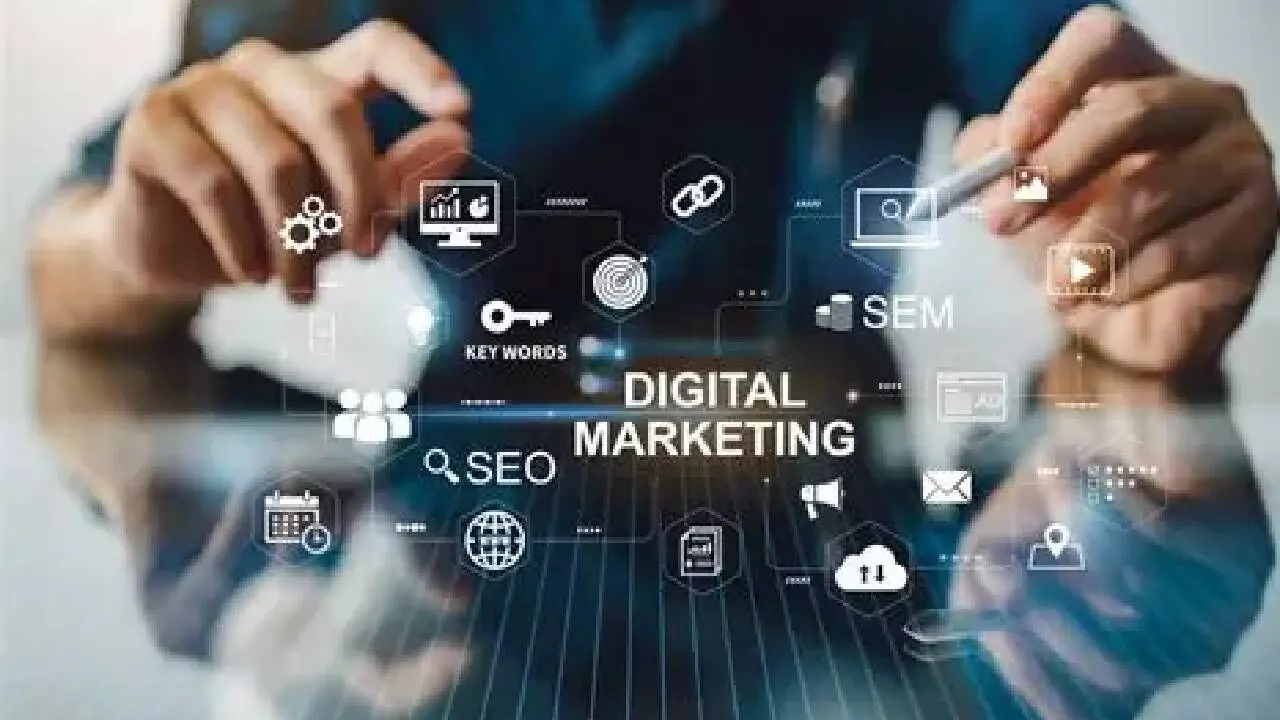What Is Digital Marketing? Types, Essential Tools & Real-World Examples Explained
Learn what digital marketing is, explore the key types—from SEO to influencer marketing—and discover top tools like HubSpot, Mailchimp, SEMrush, Canva, and Google Analytics to boost online growth.
image for illustrative purpose

What Is Digital Marketing?
Digital marketing uses digital technologies—like internet platforms, mobile devices, email, and apps—to promote products and services. It encompasses strategies such as SEO, SEM, content marketing, social media, email campaigns, influencer marketing, and mobile advertising
Types of Digital Marketing
- Search Engine Optimization (SEO): Optimizing website content to increase visibility and ranking on search engines like Google.
- Search Engine Marketing (SEM)/PPC: Paid advertising models like Google Ads where advertisers pay per click to show ads in search results.
- Content Marketing: Publishing valuable content—blogs, articles, videos—that educates or entertains potential customers.
- Social Media Marketing: Engaging audiences and driving brand awareness via platforms like Facebook, Instagram, LinkedIn, and TikTok.
- Email Marketing: Sending targeted, automated emails with tools like Mailchimp and Moosend to nurture leads and drive conversions.
- Influencer Marketing: Partnering with influencers on social platforms to promote your brand authentically.
- Mobile Marketing: Reaching users via mobile channels like SMS, push notifications, and mobile apps—often with location-based personalization.
Top Digital Marketing Tools
Email & CRM Tools
Mailchimp: Easy to use for SMBs; features templates, A/B testing, segmentation, automation, and analytics.
HubSpot Marketing Hub: Full suite for managing emails, social, SEO, landing pages, CRM, and automation.
Social Media Management
Hootsuite, Buffer, Sprout Social, Loomly: These platforms enable post scheduling, analytics, content planning, and social listening across multiple channels.
SEO & Analytics Tools
Google Analytics (GA4): Essential for tracking traffic, visitor behavior, conversions, and campaign impact—completely free.
SEMrush, Ahrefs, Moz Pro, SurferSEO: Powerful SEO tools for keyword research, backlink tracking, competitive analysis, and site audits.
Design & Content Creation
Canva and Adobe Creative Cloud: Simplify creation of visual content such as social posts, ads, and graphics—even without design expertise.
AI & Automation Tools
ChatGPT: Useful for content ideation, drafting, and brainstorming. Always fact-check for accuracy.
Vidyo.ai: Automatically edits long videos into optimised clips for TikTok, Reels, and Shorts.
Others: Project Management & Outreach
Asana, Trello, ClickUp, Breeze: Help teams collaborate, manage projects, and stay organized.
Pitchbox: Simplifies link-building and influencer outreach campaigns.
Real-World Examples & Use Cases
Small businesses use email marketing tools like Mailchimp with automation to boost retention and personalize messaging.
Brands rely on SEMrush or Ahrefs to optimize content and outrank competitors in organic search.
Creators use Buffer or Sprout Social to maintain consistent posts and track engagement metrics across social networks.
Agencies leverage HubSpot for inbound funnels, coordinating content, lead capture, and CRM in one place.
AI tools like ChatGPT streamline content drafts, while Vidyo.ai repurposes long-form video into social clips.
Why Digital Marketing Matters
India's digital economy is set to exceed $1 trillion by 2030, driven by mobile-first behavior and soaring online engagement.
Marketers are increasingly adopting AI-powered tools for ad targeting, content creation, and campaign automation—but transparency and data ethics remain challenges.

